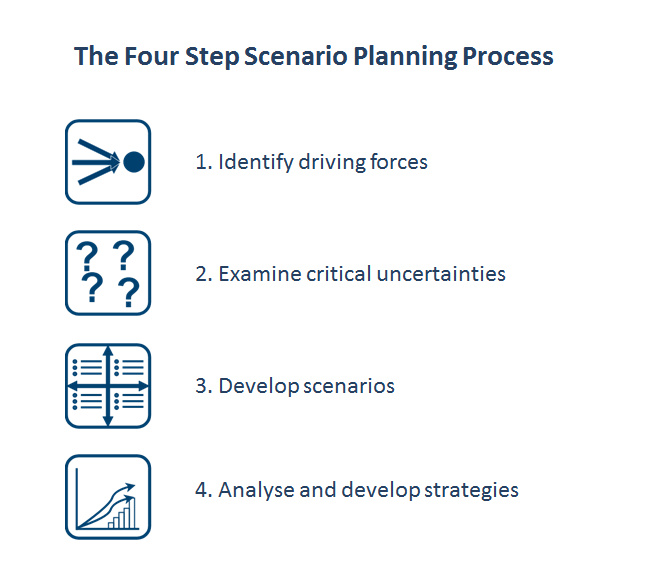Scenario planning is a technique for developing a reasoned, coherent business strategy for an environment where uncertainty dominates the future outlook.
Aside from catastrophic situations like the 2020 Coronavirus pandemic, the business world has to deal with ever increasing levels of disruption and uncertainty. In such an environment, the traditional strategic planning approach is far more effective when preceded by scenario planning.
Traditional business strategic planning extrapolates our knowledge and experience forward, into a future, that by and large, we have a good understanding of. But there can be different futures. The narratives that describe these various futures are known as scenarios.


